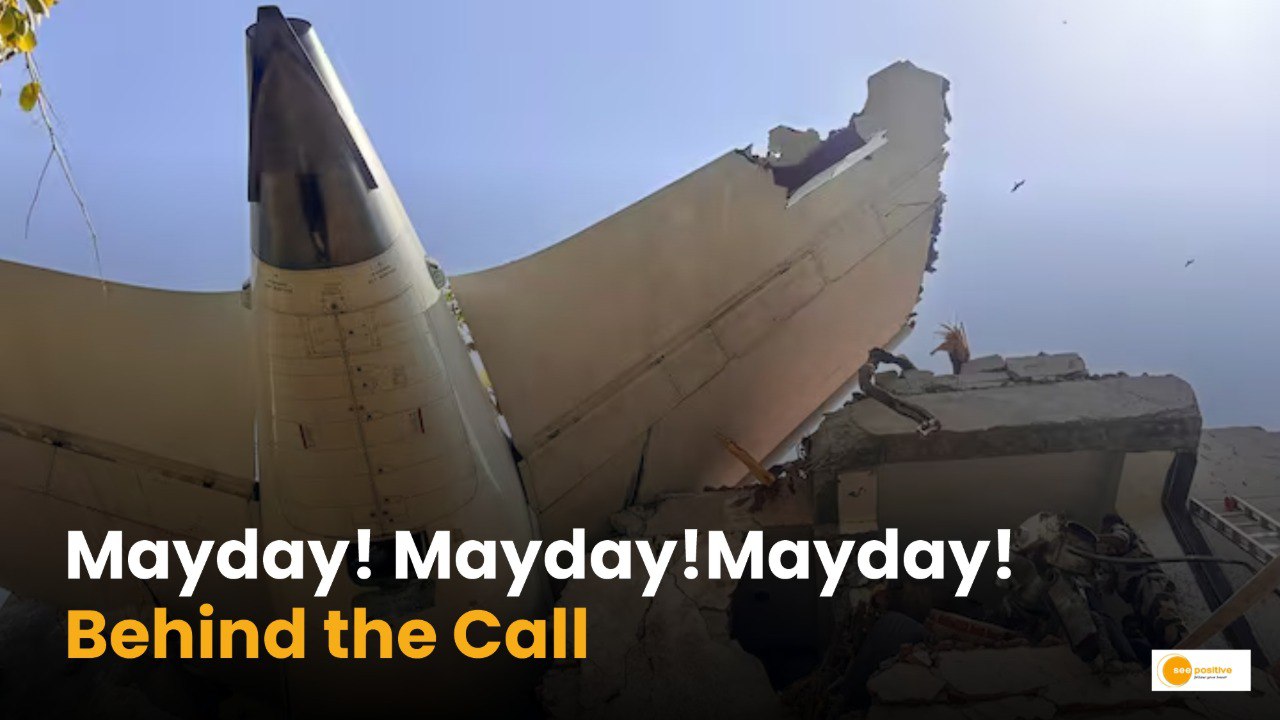Ahmedabad Plane Crash: When things go wrong in the sky, at sea, or even in remote areas, communication can be the difference between life and death. That’s where the word “Mayday” comes in — a signal known globally as a call for urgent help.
What Does “Mayday” Mean?
“Mayday” is the international distress signal used by pilots, mariners, and emergency responders during life-threatening situations. It’s the verbal equivalent of sending a flare — loud, clear, and unmistakable.
It is always said three times in a row:
“Mayday, Mayday, Mayday”
This prevents confusion and grabs immediate attention over radio communications.
The Origins of “Mayday”
The term “Mayday” was introduced in 1923 by Frederick Stanley Mockford, a senior radio officer at Croydon Airport in London. Tasked with creating a distress signal that could be easily understood by all pilots and ground staff, Mockford coined “Mayday” from the French phrase “m’aider”, meaning “help me” .
Proper Usage of “Mayday”
“Mayday” is used exclusively to indicate a life-threatening emergency requiring immediate assistance. It should be repeated three times—”Mayday, Mayday, Mayday”—to distinguish it from similar-sounding phrases and to ensure clarity over radio communications.
A standard Mayday call includes:
- The word “Mayday” repeated three times
- The aircraft’s identification and position
- A brief description of the emergency
- The intentions of the crew (e.g., requesting immediate landing)
Misuse of “Mayday” and Legal Consequences
The misuse of the “Mayday” call can divert emergency resources from genuine distress situations, potentially leading to loss of life. False Mayday calls are illegal and punishable in many countries — they divert attention from real emergencies. For instance, in 2001, a man in Texas was sentenced to ten years in prison for making a false Mayday call, resulting in a 30-hour search operation.


